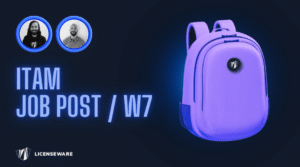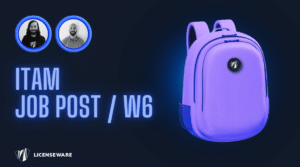Denmark’s Digital Declaration of Independence: A Growing European Revolt Against Big Tech Dependency

In a move that signals a seismic shift in how European governments approach digital infrastructure, Denmark has announced its intention to phase out Microsoft Office and Windows in favor of LibreOffice and Linux across its public sector. This decision, announced by Denmark’s Minister of Digitalization Caroline Stage in June 2025, represents far more than a simple software swap, it’s a calculated strike for what European leaders increasingly call “digital sovereignty”.
The Danish announcement comes at a time when the concept of digital independence has evolved from a fringe policy discussion to a mainstream governmental imperative across Europe. As we explored in our previous analysis of [Schleswig-Holstein’s groundbreaking migration of 30,000 government computers to open source alternatives], this trend represents a fundamental rethinking of how public institutions manage their technological dependencies.
The Catalyst: When Geopolitics Meets Technology
Denmark’s decision wasn’t made in a vacuum. The immediate trigger appears to be growing concerns about the intersection of geopolitical tensions and technology control. The specter of potential service disruptions became tangible when reports emerged that Microsoft had allegedly locked the International Criminal Court’s Chief Prosecutor, Karim Khan, out of his email accounts following President Trump’s ICC sanctions. While Microsoft later denied direct involvement, the incident crystallized European fears about the vulnerability of relying on American technology giants for critical government operations.
Henrik Appel Espersen, chairman of the Copenhagen Audit Committee, captured this anxiety perfectly when he stated, “If we suddenly can’t send emails or communicate internally because of a political fallout, that’s a huge problem”. This sentiment reflects a broader European awakening to the reality that digital infrastructure has become a potential pressure point in international relations.
The Danish concerns are particularly acute given the country’s unique geopolitical position. Greenland, a Danish territory, has been repeatedly mentioned by former President Trump as a potential acquisition target, adding urgency to Denmark’s digital independence efforts. Minister of Emergency Situations Torsten Schack Pedersen has explicitly recommended that Danish companies and agencies “create exit plans for the use of cloud services, and ensure strong ownership of data”.
The Economics of Digital Dependency
Beyond geopolitical considerations, the financial mathematics of Microsoft dependency have become increasingly untenable for European governments. Copenhagen’s experience provides a stark illustration: the city’s Microsoft software bill skyrocketed from 313 million kroner in 2018 to 538 million kroner (approximately $53 million) in 2023, a staggering 72% increase in just five years.
This cost escalation pattern isn’t unique to Copenhagen. Across Europe, public sector organizations are grappling with the reality that proprietary software licensing represents not just a significant budget line item, but an unpredictable one subject to vendor pricing strategies. The appeal of open source alternatives becomes clear when viewed through this lens: while implementation requires upfront investment in training and system integration, the long-term cost structure is fundamentally more predictable and controllable.
A Continental Movement Takes Shape
Denmark’s announcement represents the latest milestone in what has become a continent-wide reassessment of digital dependencies. The German state of Schleswig-Holstein blazed the trail with its ambitious plan to migrate 30,000 government computers from Microsoft Windows and Office to Linux and LibreOffice by 2026. This migration, described as potentially “one of the largest Linux-on-desktop deployments in the EU public sector,” has provided a practical roadmap for other European governments.
The momentum extends beyond individual government initiatives. France’s National Gendarmerie completed one of the earliest large-scale migrations, transitioning 37,000 desktops to Linux by 2013 after beginning the process in 2004, ultimately saving millions in licensing fees while gaining greater control over their digital infrastructure. Italy’s Ministry of Defence has similarly replaced Microsoft Office with LibreOffice on 5,000 machines as part of a broader transition to open platforms.
Perhaps most significantly, there are growing calls for a coordinated European approach to digital sovereignty. A petition circulating in 2024 called for the European Union to actively develop and implement a Linux-based operating system, termed “EU-Linux,” across public administrations in all member states. While this represents citizen advocacy rather than official policy, it reflects the growing political momentum behind digital independence initiatives.
The Technical Reality: Challenges and Opportunities
The transition from Microsoft’s ecosystem to open source alternatives is not without complexities. Successful migration requires careful attention to several key factors:
User Experience and Training: LibreOffice, while functionally robust, presents a different user interface and workflow compared to Microsoft Office. Organizations must invest significantly in user training and change management to ensure smooth adoption.
File Format Compatibility: While LibreOffice can open and edit Microsoft Office formats, complex documents with advanced formatting, macros, or embedded objects may experience fidelity issues during conversion.
Integration Challenges: Many government systems have been built around Microsoft’s ecosystem, particularly Active Directory for user management and SharePoint for collaboration. Migrating to open source alternatives often requires developing custom integration solutions or adopting alternative platforms like NextCloud for cloud services.
However, these challenges are balanced by significant advantages that extend beyond cost savings. Open source solutions offer unprecedented customization capabilities, allowing governments to tailor software to their specific needs rather than adapting processes to vendor limitations. The transparent nature of open source code also enables security auditing and ensures that governments understand exactly what software is running on their systems.
Global Context and Future Implications
The European push for digital independence reflects a global trend toward technological self-reliance. China’s development of HarmonyOS, which overtook iOS in China’s mobile operating system market by 2024, demonstrates how geopolitical tensions can accelerate domestic technology development [2]. While China’s approach involves creating entirely new platforms, European governments are leveraging existing open source ecosystems to achieve similar independence goals.
The Danish decision, combined with similar moves across Europe, suggests we’re witnessing the early stages of a fundamental shift in how public sector organizations approach technology procurement. This trend has several important implications: technology vendors can no longer assume that government customers will accept arbitrary pricing increases or policy changes, there will be increased demand for professionals with Linux and LibreOffice skills, and government adoption may accelerate innovation in open source ecosystems.
Conclusion: A New Chapter in Digital Governance
Denmark’s decision to phase out Microsoft in favor of open source alternatives represents more than a technology migration, it’s a declaration of digital independence that reflects broader European concerns about technological sovereignty, cost control, and geopolitical vulnerability. When viewed alongside similar initiatives in Germany, France, Italy, and other European nations, a clear pattern emerges: governments are no longer willing to accept the risks and costs associated with dependence on foreign technology giants.
The success of these initiatives will depend heavily on execution, particularly in areas like user training, system integration, and change management. However, the political momentum behind digital sovereignty initiatives suggests that European governments are committed to seeing these transitions through, even when faced with implementation challenges.
As we move forward, the Danish example may well inspire other governments worldwide to reassess their own digital dependencies. In an era where technology infrastructure has become critical to national security and public service delivery, the question is no longer whether governments should pursue digital sovereignty, but how quickly and effectively they can achieve it.
The revolution that began in Schleswig-Holstein and has now reached Denmark’s national government represents just the beginning of what may become the most significant shift in public sector technology adoption since the original computerization of government services.










